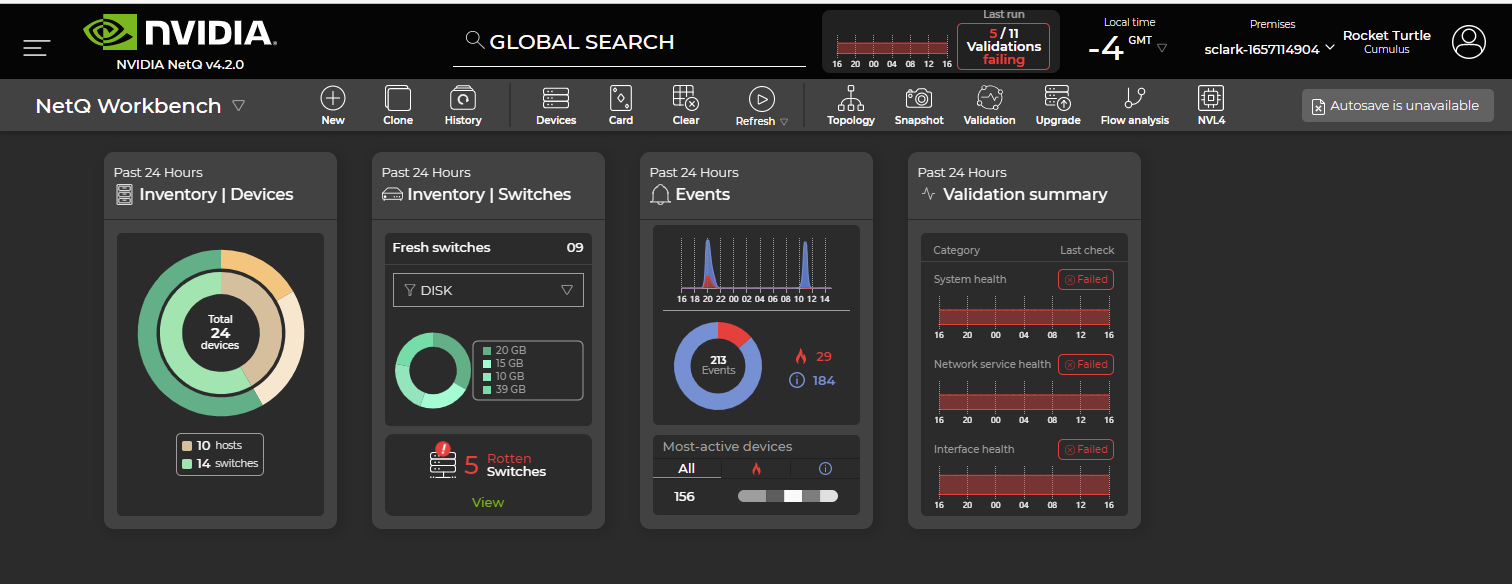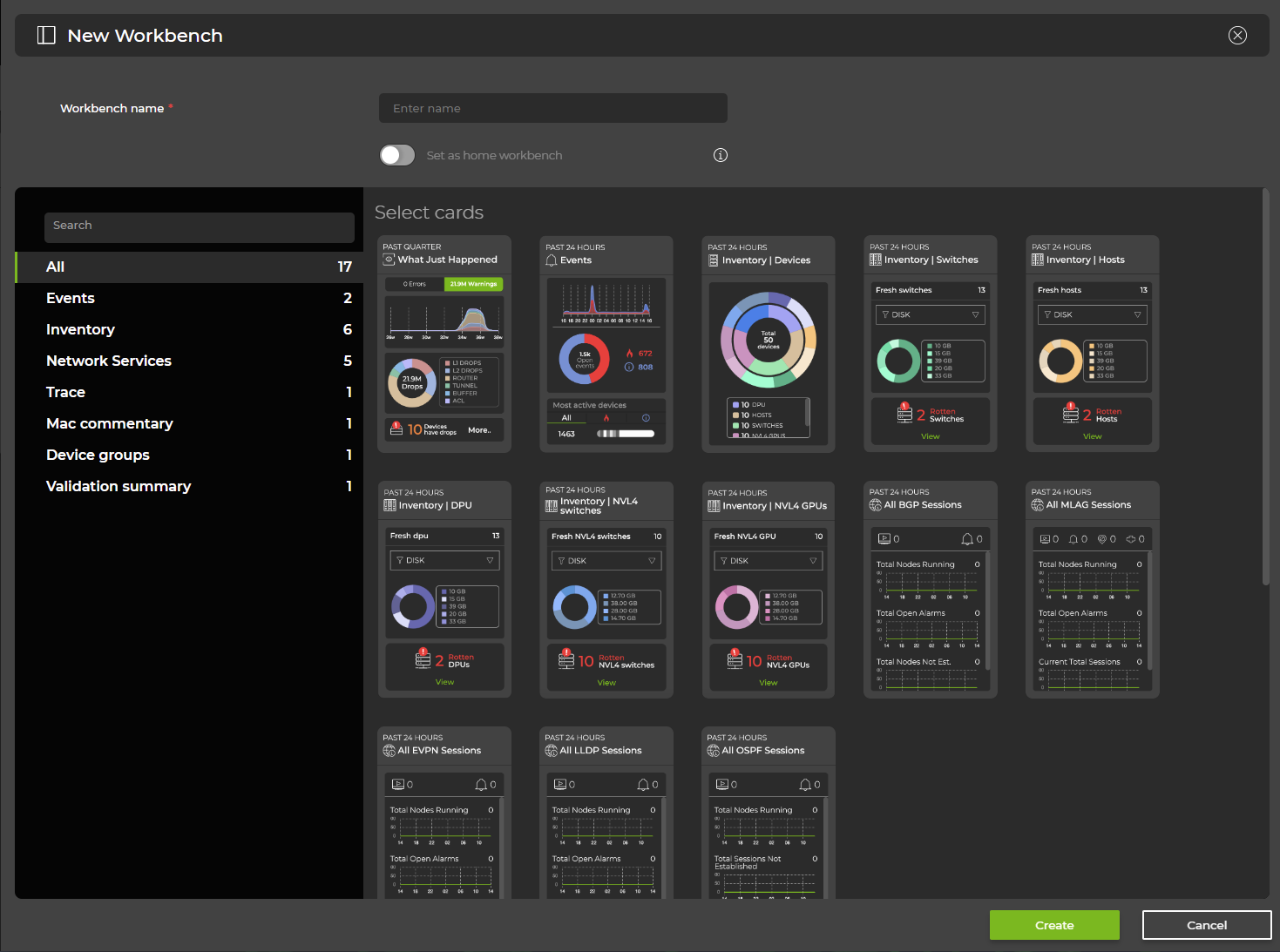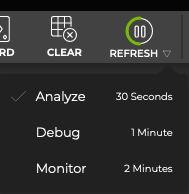Focus Your Monitoring Using Workbenches
Workbenches are dashboards where you collect and view data. Two types of workbenches are available:
- Default: Provided by NVIDIA; you cannot save changes you make to these workbenches
- Custom: Created by the user; changes made to these workbenches are saved automatically
Both types of workbenches display a set of cards. Default workbenches are public (accessible to all users), whereas custom workbenches are private (viewing is restricted to the user who created them).
Default Workbenches
The default workbench contains Device Inventory, Switch Inventory, Events, and Validation Summary cards, giving you a high-level view of how your network is operating.

Upon initial login, the NetQ Workbench opens. Upon subsequent logins, the last workbench you viewed opens.
Custom Workbenches
People with either administrative or user roles can create and save an unlimited number of custom workbenches. For example, you might create a workbench that:
- Shows network statistics for the past week alongside network statistics for the past 24 hours.
- Only displays data about virtual overlays.
- Displays switches that you are troubleshooting.
- Is focused on application or account management.
Create a Workbench
-
Select
New in the workbench header.
-
Enter a name for the workbench and choose whether to set it as your default home workbench.
-
Select the cards you would like to display on your new workbench.

-
Click Create to create your new workbench.
Refer to Access Data with Cards for information about interacting with cards on your workbenches.
Clone a Workbench
To create a duplicate of an existing workbench:
-
Select
Clone in the workbench header.
-
Name the cloned workbench and select Clone.
Remove a Workbench
Admin accounts can remove any workbench, except for the default NetQ Workbench. User accounts can only remove workbenches they have created.
To remove a workbench:
-
Select
in the upper-right corner to open the User Settings options.
-
Select Profile & Preferences.
-
Locate the Workbenches card.
-
Hover over the workbench you want to remove, and click Delete.
Open an Existing Workbench
There are several options for opening workbenches:
- Open through the Workbench header
- Click
next to the current workbench name and locate the workbench
- Under My Home, click the name of your favorite workbench
- Under My Most Recent, click the workbench if in list
- Search by workbench name
- Click All My WB to open all workbenches and select it from the list
- Click
- Open through the main menu
- Expand the
Menu and select the workbench from the Favorites or Workbenches sections
- Expand the
- Open through the NVIDIA logo
- Click the logo in the header to open your favorite workbench
Manage Auto-refresh for Your Workbenches
You can specify how often to update the data displayed on your workbenches. Three refresh rates are available:
- Analyze: updates every 30 seconds
- Debug: updates every minute
- Monitor: updates every 2 minutes
By default, auto-refresh is enabled and configured to update every 30 seconds.
Change Settings
To modify the auto-refresh setting:
-
Select the dropdown
next to Refresh.
-
Select the refresh rate. A check mark is shown next to the current selection. The new refresh rate is applied immediately.

Disable/Enable Auto-refresh
When you are troubleshooting and do not want the displayed data to update, you can disable auto-refresh then enable it when you are finished.
To disable or pause auto-refresh, select above Refresh in the workbench header. When you’re ready for the data to refresh, select
.